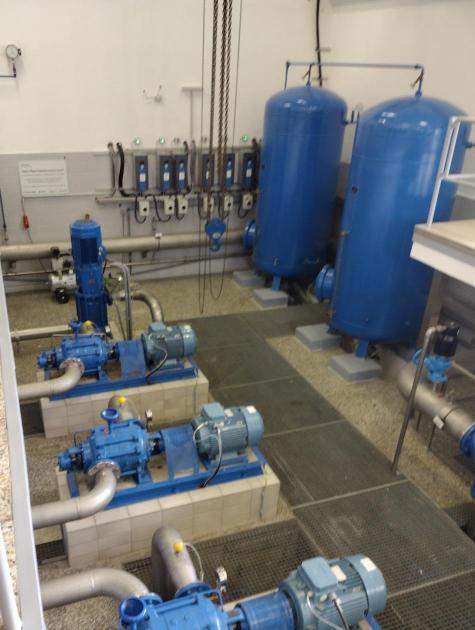Bulgaria is currently not doing well in managing its water resources, and more European requirements are coming

The integrated approach to managing the water sector in Bulgaria is practically not developing, said the Deputy Minister of the Environment and host Atanas Kostadinov at a national discussion forum "Challenges that cannot wait - dialogue and solutions for the Bulgarian water sector". In his words, quoted by BTA, this is important both in terms of ownership, and in terms of management, and in terms of your types of purposes and water addition, and in terms of your public interests in using water resources for drinking and domestic purposes, for hydromelioration, for energy needs.
"We are very far away and there is much to be desired in terms of integrated water use," believes Deputy Minister Kostadinov. According to him, Bulgaria is failing to fulfill the additional tasks set by the Urban Wastewater Treatment Directive, given that the package of new directives, and especially the Water Sustainability Strategy, are setting new serious conditions in the water sector with a horizon of up to 2050. Among them is the requirement to submit national plans by EU countries in which water losses are above the European average by 2028, in order to enter into force in 2030, and the requirement to reduce water losses within the EU by at least 10 percent by the end of this decade.
Deputy Minister Kostadinov defined the latter goal as ambitious, but also achievable.
In front of the gathered representatives of stakeholders in the water and sanitation sector, he also announced a new approach to solving the challenges in the sector, where, in his words, the country cannot boast of great successes not only in transposition, but also in the implementation, conduct, control and realization of water policy. He believes that there is a rethinking of the state's vision so that it is not left alone in transposing European legislation into national legislation, but that this should be done in cooperation with stakeholders. This cooperative approach, in his opinion, can show that Bulgaria is capable of providing effective solutions.
Deputy Minister Kostadinov approved the approach proposed by the Bulgarian Water Association (BWA) with regard to legislative proposals for transposing the Wastewater Treatment Directive and deepening the view in the assessment, analysis and strategic planning in the sector.
Ivan Ivanov, Chairman of the Bulgarian Water and Sanitation Association and moderator of the forum, also called for a constructive dialogue with the Commission, which would lead to solutions to the challenges in the water and sanitation sector. According to him, the aim of the association is not to criticize the Commission, but to advise them.
“The constructive dialogue must take place before we start the transposition of the new urban waste water treatment directive. It must include all the requirements, the requirements for the current directives, in the hope that the water sector will be able to get out of the role of the “schoolboy”, said Ivanov and added that as of today, there are over 200 settlements in the country with over 2000 inhabitants without urban waste water treatment plants, which requirement should have been fulfilled by 2014.
Ivan Ivanov reports that the Bulgarian Water and Sanitation Association is offering the Commission and advising them to apply for the so-called technical assistance to the EC for the successful transposition of the directive. Such an opportunity is open after the EC sent a request for applications under the technical support instrument for 2026 on May 13, 2025, Ivanov added, recalling that applications for assistance can now provide an opportunity for a wide range of areas, including the green and digital transition, diversity, public and private finances, migration, business environment, healthcare, skills and education.
The BWA has identified a set of topics in the Water and Sewerage sector on which support can be sought, offering not only technical and administrative assistance to state authorities in the process of applying for access to technical support from the EC, but also to develop the application forms.
Ivan Ivanov recalled that on June 18, 2025, the EC officially notified Bulgaria of incorrect transposition of the Drinking Water Directive. The Bulgarian legislation does not, in his words, properly cover exclusions and derogations, it does not include risk and assessment requirements, it does not cover all aspects of monitoring drinking water quality. Bulgaria has a 2-month response time before the EC decides to file a lawsuit.
“That is why now, on the eve of the transposition of the Urban Wastewater Directive, this meeting is being organized with all stakeholders in the water and sanitation sector, in order to find working solutions to the challenges," he specified.
The meeting was also attended by Ivaylo Kaschiev, Chief Director of the Water Supply and Sewerage Services Directorate at the Energy and Water Regulatory Commission (EWRC).
Deputy Minister Atanas Kostadinov was the only representative from a ministry who responded to the invitation of the organizers of the professional discussion. Invitations for today's meeting were also sent by the BWA to the Ministry of Environment and Water (MESW), the Ministry of Regional Development and Public Works (MRDPW), the Ministry of Health (MH), the Ministry of Economy and Industry (MEI), and the Ministry of Energy (ME).
The forum is organized by the Bulgarian Water Association - BWA, in cooperation with the Union of Water and Sewerage Operators in the Republic of Bulgaria and the Water Affairs/Federation of Scientific and Technical Unions (FNTS).
